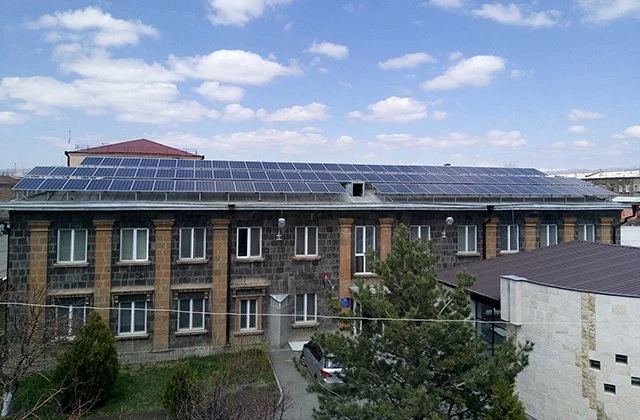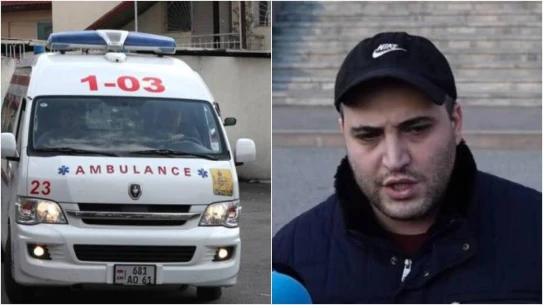On November 25, 2024, representatives of the Human Rights Defender's office conducted an unannounced monitoring visit to Gyumri "Children's Home" of the RA Ministry of Labor and Social Affairs.
During the visit, the facility's building conditions, communal and sanitary facilities, care provided to children, particularly first aid services, food and clothing, relations between the staff of the facility and children, the status and documents of protection of children's rights and interests, their compliance with established requirements and applicable standards.
The representatives of the defender's office have recorded a number of problems, some of which are systemic and require urgent solutions.
In particular, it was recorded: The necessary living space for personal space is not preserved, in particular, there are beds connected to each other or placed very close to each other in the rooms. Due to insufficient space, a case of joint care of boys and girls was recorded.
The facility is not provided with safe, supportive and developmentally appropriate conditions for children.
The ability to independently satisfy the narrow personal demands and needs (personal hygiene) of children in isolated conditions is not ensured.
For example, most bathrooms were not separated from bedrooms, children were bathed in the bedroom in the presence of other children.
Sanitary and hygienic conditions are not provided. Children's brushes were dirty, there is a problem of individualization of children's personal hygiene items, cups, plates (cases of nannies confusing children's towels were recorded).
In each group room of the institution there was a drug storage box, which was dirty, containing opened and unused drugs, which were unlabeled and filled in different boxes, syringes were placed together with household items.
Expired medicines and porridge were found. There was no appropriate marking on the meat products, which made it impossible to check the expiration date. Due to the difficulty of attracting relevant specialists, the Institution did not carry out an assessment of the individual needs of children for medical, including palliative, assistance and service.
Artificial feeding was carried out using syringes and feeding probes (nasogastric tube), which were disinfected and reused without personalization. Children's clothes and separate feeding bottles for them were worn out.
The physical environment of the facility does not meet the principles of universal design.The facility has a need to provide accessible transportation and reasonable accommodations for persons with disabilities.
Problems related to the proper handling of documents were recorded.
For example, the "Health Log" was missing, the register of suspected or confirmed cases of violence against and between children and reports of such cases to competent authorities was incomplete.
There is a need to introduce mechanisms for identifying, preventing and responding to cases of violence against children in the institution. The institution needs to be equipped with a multidisciplinary team and target training of existing specialists.
There is a need for employees to improve their skills in dealing with children.
According to the information provided, during 2024, the process of transferring children, including children aged 0-3 years, to the Institution continued, during 2024, no child living in the Institution was taken care of by a foster family and no child was returned to the family.
The institution does not have a mechanism that provides a real, accessible and affordable opportunity for children to participate in issues related to children, to ensure the right to be heard, as well as to exercise the right to appeal. Systematic problems related to the lack of effective cooperation between educational institutions and the Institution were recorded in order to adapt and adapt the educational process to the requirements of each child, to provide an appropriate educational response.
A visually impaired child living in an institution and studying in a public educational institution was not provided with Braille books and other necessary educational materials, etc. At the end of the visit, the recorded problems were discussed with the Director and staff of the Institution.
As a result of the discussion with the director, the representatives of the defender's office also presented recommendations related to solving the problems.
The results of the unannounced monitoring visit, including the systemic issues repeatedly raised by the Defender, will be summarized and the document reflecting them together with the recommendations will be presented to the competent authorities of the sector.


